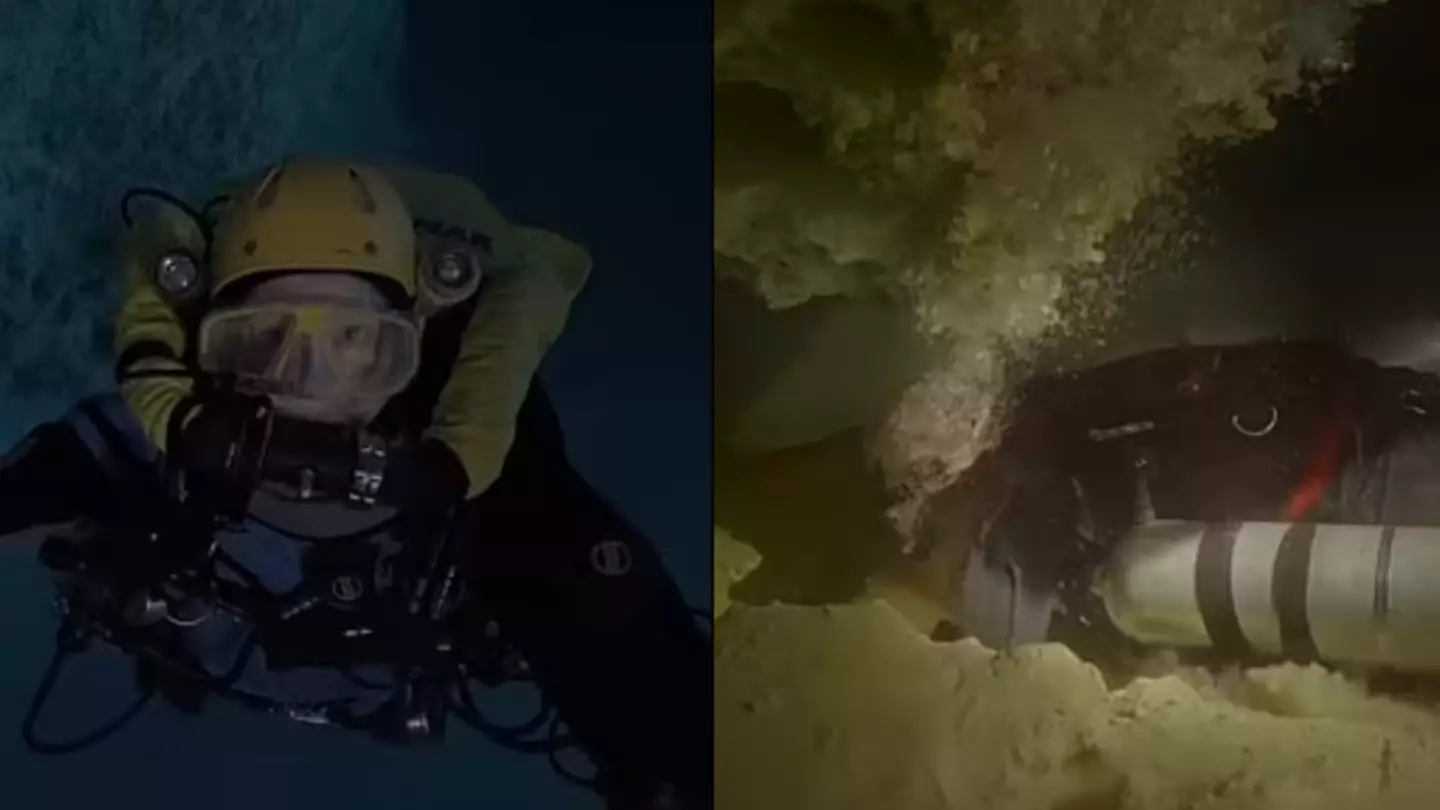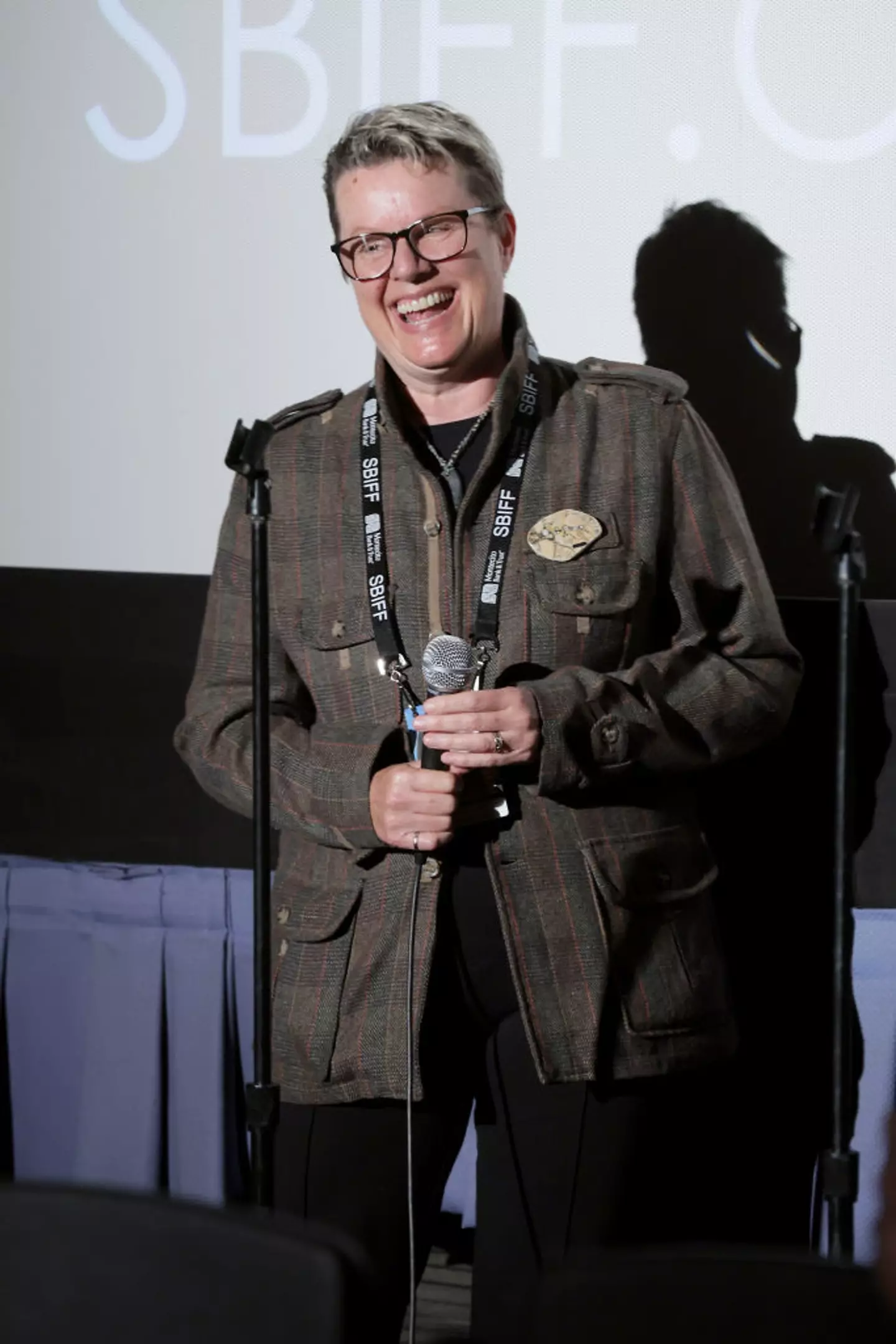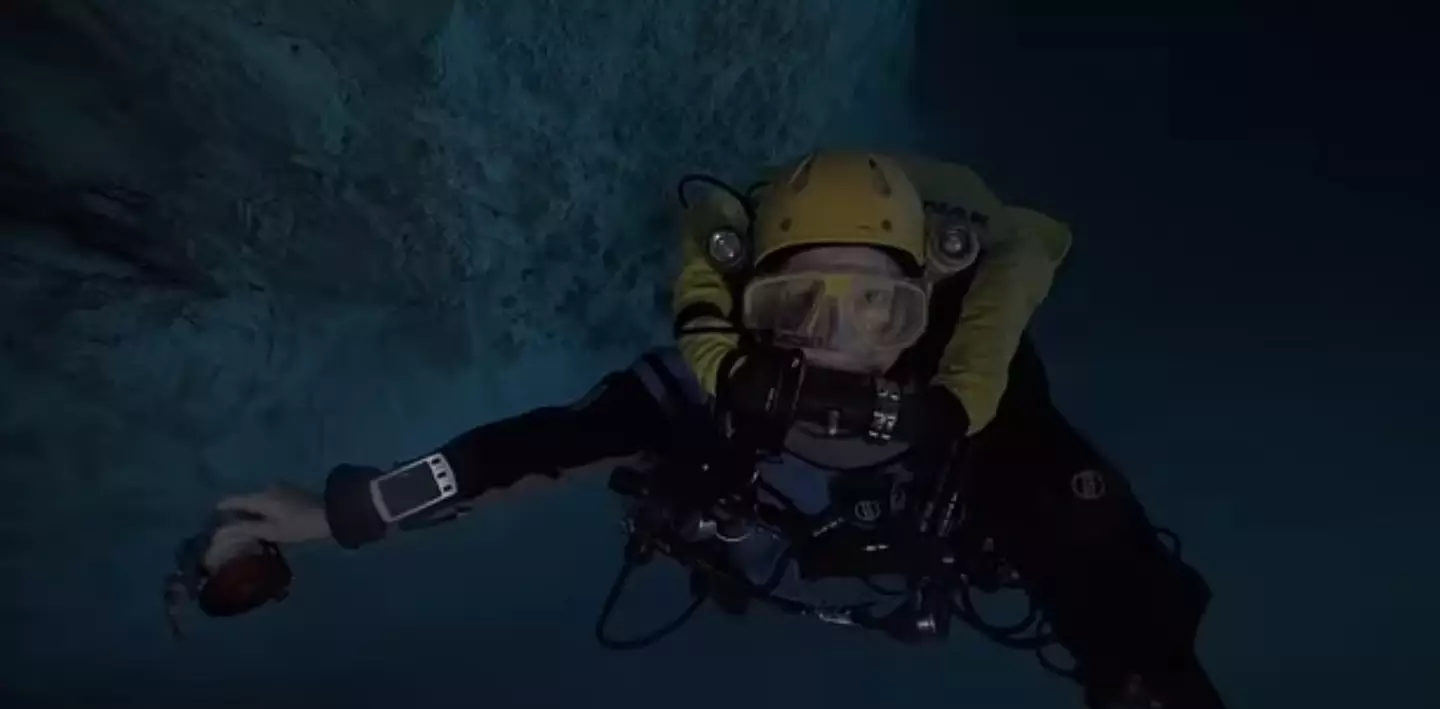
A diver has shared the horrific moment she almost died after being sucked through an iceberg in Antarctica.
Jill Heinerth, 60, from Canada, recalled the terrifying experience, explaining how the dive turned into a 'three hour fight for [her] life'.
Recalling what happened to PEOPLE, Heinerth - whose dives are chronicled in the documentary, Diving into the Darkness - explained how she, her former husband Paul Heinerth and the late camera operator, Wes Skiles, had been on the final dive of their trip when they encountered ferocious currents and freezing temperatures.
Advert
The team had been diving inside the icy structure in order to 'intercept the largest iceberg in recorded history', but their trip was almost fatal.
When the team first entered the water, their first two dives were 'chaotic' with Heinerth explaining that she missed a crucial sign that something wasn't quite right.
"On the seafloor were all these yellow and red and warm coloured filter feeding organisms creating this sort of shag carpet of life," she explained.
"And I should have paid attention immediately because the current was strong, and the current brings food to the stationary animals that were anchored tightly into the sea floor. And that should have been one of those sort of ‘A-ha.’ Everything was anchored here because it needed to be."

The current was quickly picking up, but it was during the team's last dive in which they came into real trouble.
"When they say your life flashes before your eyes, it doesn't really," she said. "You think a couple of really stupid thoughts. And then you go, 'Wait a minute. I've got to focus.'
"I'm not able to think about how to get out of the iceberg. I'm just thinking, 'What's the next best step towards survival.'"
The current the team faced was ferociously strong and Heinerth had to tell Skiles to remove the large camera he was carrying.
"Every time you're working really hard on the rebreather, a diving apparatus, you're actually pushing the limits of what it's capable of doing," she said. "If it's incapable of processing the amount of carbon dioxide you're expelling, then you can pass out.
"And if I was suddenly having to worry about not just myself, but rescuing my colleague, it'd be game over for both of us."
Explaining that there was nobody there to rescue them, it was up to Heinerth to lead her team to safety.

Despite the current sweeping them back, Heinerth noticed tiny fish eating their way into the wall of the iceberg. She quickly realised she could use the small holes to grip onto, pulling herself upwards in the process.
Eventually, the team were able to reach the surface - but the ordeal wasn't over.
"The worst risk is actually as soon as you hit the surface, when you can literally freeze tissue on the spot, especially if it's windy when you're trying to get in the boat." she said.
Luckily, the team survived, with Heinerth explaining her first words when they returned to safety were: "The cave tried to keep us today."
Topics: News, Environment
